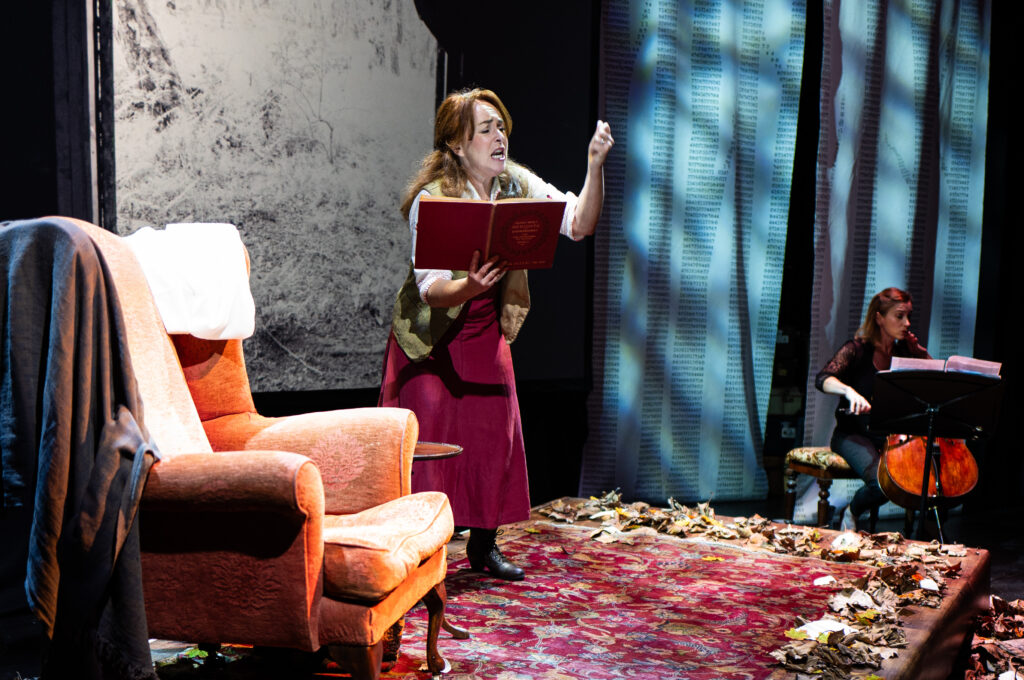The Marylebone Theatre, London – until 3 February 2024
Reviewed by Chelsea Kania
4****
The year is 1943. A train lurches to a stop in the blizzarding dead of winter. A reluctant hand
reaches out with a precious bundle—and drops it into the snow. An old woman approaches,
hearing its cries and knowing with an unquestioning heart that this child now belongs to her.
Humanity’s expansive capacity for love and compassion is explored alongside its darker truths in The Most Precious of Goods, based on the novella by Jean-Claude Grumberg. Like a story hour with book in hand, Samantha Spiro (One Life, Sex Education) heroically narrates and performs her way through the tale of a poor Polish woodcutter’s wife who brings a Jewish baby into her home despite her husband’s vicious protests and the increasingly sinister backdrop of war-torn Eastern Europe.
Grumberg is the writer of a vast collection of critically acclaimed stories and plays, many
concerned with anti-semitism and the Holocaust, in which his father and grandparents perished. The novella has earned itself an upcoming feature film adaptation, but this live performance is a uniquely sensorial immersion into Grumberg’s world, and perhaps not one to miss.
The story is brilliantly read by Spiro, whose abundant optimism and humour relay the joys of
parenting. While at the same time, she effectively balances harrowing details of the birth family’s fate at a death camp miles away, as well as the many tragedies that befall its new mother while she strives to keep them both alive.
Carly Brownbridge’s stage design does a nice job of accompanying this tricky mood; look
closely at the abstract treeline and you’ll notice it’s populated with prisoner numbers. Huge
projections of Judy Goldhill’s black and white photography from a sombre but mesmerising
backdrop.
And speaking of mesmerising, Spiro is not alone; she shares the stage with award-winning
cellist Gemma Rosefield, whose three-hundred year old cello conjures as many centuries of
human joy and pain to punctuate the story’s dramatic moments. Rosefield’s performance is a real highlight, and something I’d have been eager to hear more of throughout.
As National Holocaust Remembrance Day approaches on 27 January, the tragedies of WW2 only seem to deepen those taking place in the world today. But by pulling unconditional love from the dark, both Grumberg’s story and this performance are rare in their ability to generate hope. It’s a welcome experience, and an inspiring one

